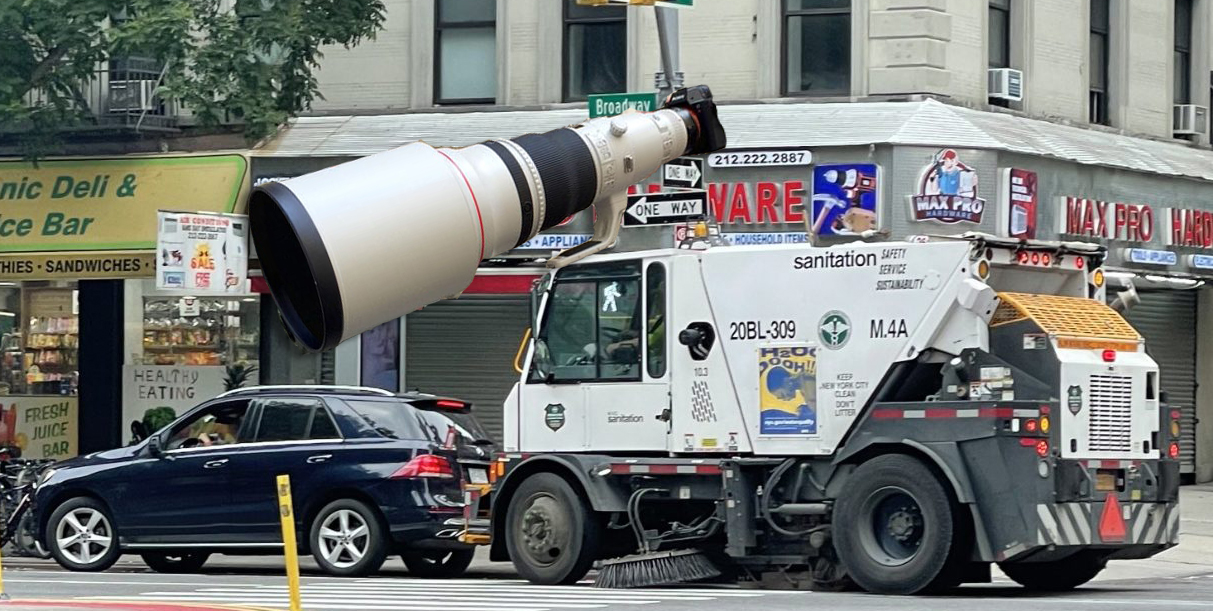New York City would be able to put enforcement cameras on street-sweepers to catch illegally parked cars under a state bill that fulfills the Sanitation Department's longstanding ask for help getting vehicles out of the way of road-cleaning operations.
The proposal would give the city the power to catch and fine the all-too-many motorists who don’t move their cars during street cleaning hours — just as bus-mounted cameras nab scofflaws in the way of bus lanes, according to the Brooklyn lawmaker behind the legislation.
“Dirty streets are totally unacceptable,” said Brooklyn Assembly Member Brian Cunningham. “This is where we can score a home run and really make an impact.”
Under Cunningham's bill, cameras could snap illegally parked vehicles along the curb during cleaning hours when the lane is supposed to be clear on all of DSNY's street sweeping routes. The city would be required to install new street signs that that say parking regulations are photo-enforced.
About one-third of constituent complaints to Cunningham's office are about filthy streets, the central Brooklyn pol noted. Garbage routinely clogs drains — which causes worse flooding during storms, he added.
“It’s one domino that fixes a lot of things,” Cunningham told Streetsblog. “Just your simple act of moving your car… would give us a huge boost.”
DSNY declined to comment on pending legislation, deferring to City Hall. Sanitation Commissioner Jessica Tisch has pushed for automated camera enforcement on street sweepers, or mechanical brooms as New York’s Strongest call them.
“The opportunity and tragedy for me as someone with a big background in tech is the technology exists and it’s not hard but we need a change in state law to allow us to use the technology to do automatic ticketing for violations or failure to move vehicles for alternate side parking,” Tisch said at a Council budget hearing last May.
The agency has tried multiple approaches to get car owners to stay out of their way, including a PSA-style plea on TikTok begging motorists to move their cars.
@nycsanitation Full ASP is back today! Please move your car so we can keep streets clean, safe & healthy. Link in bio. Thanks #sarahmclachan for the inspo💚 #dsny #fyp
♬ original sound - nycsanitation
Officials used to plaster violators' car windows with brightly colored, hard-to-remove stickers, but the Council outlawed the public shaming notices in 2012.
The newly proposed law would phase in after a year and expire again by mid-2029, which Cunningham said will allow officials to evaluate whether they need to make any tweaks.
“Four-to-five years is a good window to take a look and see how we’ve progressed on this issue, and what we need to add to the legislation,” he said.
Raising fines could be an option down the line as well, Cunningham said.
“I’d be curious to see how this has an impact and what’s worth going back and looking at legislation that would either escalate fines or other matters. I don’t want to go there yet, I want to see how this data would work out first and take appropriate steps after,” he said.
Many motorists simply absorb the cost of the occasional $65 ticket for parking during street cleaning hours, which often comes out cheaper than paying for an off-street parking spot in a garage.
More than three-quarters of street cleaning parking tickets go to repeat offenders, according to a recent analysis. Council Member Lincoln Restler last year introduced a proposed law to increase those fines.
Cunningham's bill originally came out in January [PDF], and it would have initially put the program under the auspices of either DSNY or the Department of Transportation, allowing the latter to pick locations to set up stationary or mobile cameras. But the lawmaker amended the bill in March to make the sweeper cameras a Sanitation program.
Uptown Manhattan State Senator Robert Jackson introduced a similar bill in the upper chamber last month as well, and Cunningham hopes to pass the proposal in the Albany legislature before the end of this session, which wraps up at the end of June.
"It’s a priority to me this upcoming session," Cunningham said.
City Hall declined to comment.






